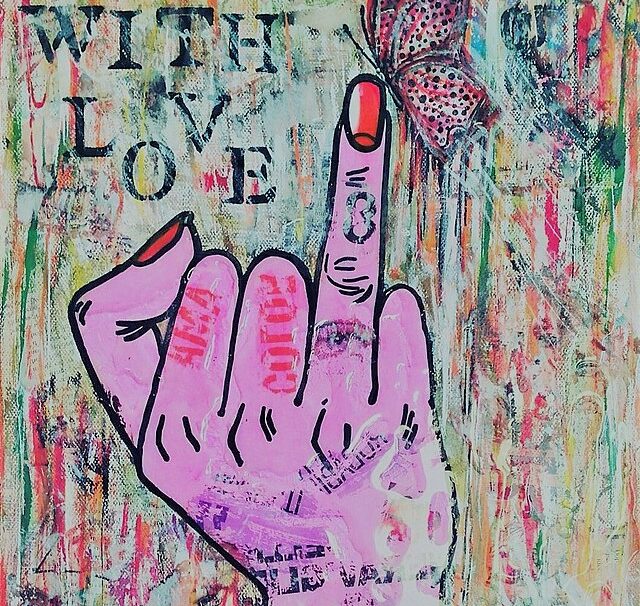Reading Lists
7 Novels by Forgotten Women Writers
Sloane Tanen, author of "There's a Word for That," recommends overlooked books by and about women

I generally prefer to read older fiction, novels published anywhere from the late 18th century onward, books people are no longer talking about. Something about blowing the dust off a forgotten book makes me feel special, chosen, as if the author and I are the only people in on the same secret; that a good book long forgotten is, in reality, timeless. What may have started in my youth as a vain preoccupation with looking “smart,” with toting around a copy of Jakob Von Guten rather than, say, Bridget Jones’ Diary, has evolved into a genuine appreciation for reading both our dead literary giants and the quieter talents that nobody quite remembers.
I’ve come to realize (without any intention) that most of my very favorite books are written by women, about women.
Nearly all of the women listed here enjoyed varying degrees of success in their lifetime. Some won prestigious prizes; nearly all wrote multiple best sellers. And yet, every one of these writers, of these books, can be considered forgotten. By ignoring these books we aren’t just ignoring our debt to what our female ancestors in this business did, but depriving ourselves of some of the smartest, funniest, most intelligent fiction to be read. Critics agreed, the public agreed, and yet good luck finding a copy. These novels, certainly these writers, deserve another reading. In this loud, politicized literary landscape, there is a real pleasure in curling up with a novel about our inner lives, about the way we lived then, and about how little of substance has really changed.
Sudden Rain by Maritta Wolff
In 1972, the seventh and final novel from Maritta Wolff was literally put on ice. In a fit of anger, the critically celebrated and widely read author shoved the manuscript into her refrigerator and left it there for the last thirty years of her life. Wolff blazed onto the scene at twenty-two-years-old with Whistle-Stop; a novel Sinclair Lewis called “the most important novel of the year.” She went on to produce four more bestsellers over the next two decades. So what happened? Wolff despised publicity. When her publisher insisted she go on a promotional tour for Sudden Rain, Wolff refused, froze the manuscript and never wrote again. A strange story to be sure but what remains is a sort of time capsule, published posthumously to much acclaim, chronicling the inner life and domestic mores of the late 1960’s and early 1970’s. The novel follows three married couples over the course of one stormy weekend in Los Angeles. With a stunning ear for dialogue that echoes Dawn Powell, and an even keener grasp of human nature that recalls Theodore Dreiser, Sudden Rain is a novel ready to be re-heated and served.
Good Behavior by Molly Keane
Good Behavior opens with fifty-seven-year-old Aroon St. Charles politely killing her sick mother by feeding her a rabbit mousse. Is it murder, or good behavior? The magic of the entire novel lies in the disparity between what the reader knows, and what the reader thinks Aroon knows. This is no easy feat, and one that Keane pulls off with effortless grace.
Aroon, the “plain,” unmarriageable daughter of a devastatingly cruel Mummie and a “distracted” Papa, resides in her crumbling, Irish ancestral home, where bills have been “pushed into the drawer where they always went,” animals are treated with more deference than people, and the servants are tolerated with a contemptuous familiarity. If Aroon takes pride in anything, it is her manners, her good behavior. She knows how to behave because no matter what indignity she is forced to endure, good behavior must be maintained. The book is told from Aroon’s perspective, and she relays the brutal details of her upbringing with such shocking remove that the book, much like Our Spoons Came From Woolworth’s, or more recently, The Patrick Melrose Novels, draws its power from tiptoeing that delicate line between the nightmarish and the devastatingly funny.
Rejected as “too dark” by a publisher, Molly Keane did not enjoy the success of her eleventh novel (the first written under her real name) until she was in her late seventies, when the book was shortlisted for the Man Booker Prize. Keane lost to Salman Rushdie’s Midnight Children and the book, along with its author, have since slipped into obscurity.
Someone At A Distance by Dorothy Whipple
After a wildly popular writing career in the thirties and forties, Dorothy Whipple’s exceptional last novel, published in 1953, bombed. “Editors are all mad for action and passion now,” explained her publisher, when the book failed to get reviewed. Whipple gave up writing and died thirteen years later, believing her work was all but forgotten.
Someone At A Distance is a timeless story of the systemic destruction of a happy marriage by adultery. The magic here lies not in what happens, but how Whipple portrays what is lost. Much like Evan Connell’s Mr. and Mrs. Bridge, every pride, shame and humiliation the family endures can be felt as if it were a personal blow. Whipple’s meticulous depiction of the inner lives of her characters seems effortlessly drawn. Though Someone At A Distance was re-issued in 2008, I’m always surprised that more fans of Elizabeth Gaskell and Barbara Pym haven’t happened upon this absorbing novel.

Frost in May by Antonia White
Drawn from White’s own childhood experiences at convent school, this literary gem is a detailed portrait of a world as seductive as it is horrifying. Originally published in 1931, the power of this novel lies in its details and its paradoxes. Nanda, the nine-year-old protagonist, is sent to the Convent of Five Wounds by her beloved Catholic convert father. Obedient and clever, Nanda quickly adapts to the schools rigid conformity but is forever marked by the abuse she is forced to endure there. As you read, it slowly becomes clear that this is not a book about school or even Catholicism, but about human cruelty, mean and calculated, crushing innocence in the name of religion. In a piece written for The Guardian, Tessa Hadley explained “Something happened to (White) at that school, by all the biographical accounts, which marked her for life – obsessed her and damaged her. The experience prevented her from writing for years, but in the end it also gave her this small masterpiece of a novel, exquisitely poised between a condemnation of the school and a love letter to it.”
Evelina by Frances Burney
Before Jane Austen, there was Frances Burney. Evelina, published in 1778, is an epistolary novel; the drama told through the first person letters of the many characters involved in a young woman’s debut into London society. Much like Austen’s heroes (and those of the Bronte sisters after her), Evelina learns to navigate the complex layers of society and earn the love of a distinguished man. Sentimental? Possibly, but the dizzying, dark side of Georgian London has never so deftly illuminated the vulnerability of female innocence in a male-dominated culture.
Though Burney published the novel anonymously (to avoid censure from both her father and a public that disapproved of women who read and wrote novels) her identity was swiftly revealed and the book went on to achieve well-deserved success. Sadly, the book has fallen away. Burney’s gift for strongly delineated characters and satiric humor foreshadow such novelists of manners as Thackeray and Trollope.
Rhoda by Ellen Gilchrist
I first met the character of Rhoda Manning in Gilchrist’s Victory Over Japan, which won the National Book Award in 1984. What a thrill to discover an entire collection devoted to Gilchrist’s most beloved character. Arranged in chronological order of Rhoda’s age—from eight to about sixty, the stories detailing Rhoda’s childhood and adolescence, when Rhoda is young and growing up with her brother during World War II, are certainly the strongest. Nonetheless, readers will delight in following this brassy redhead into an adulthood filled with pathos and gothic humor. With echoes of Eudora Welty and Flannery O’Connor throughout, Gilchrist’s writing sparkles and comes to life. Rhoda may not be the most likeable character, but her quest for freedom (or at least happiness) outside the prescribed roles for women is an addictive journey well worth taking.
The Tortoise and The Hare by Elizabeth Jenkins
Jenkins mid-century tale of domestic drama and female sexuality is quietly heart breaking. The novel details the marriage of pretty and admiring Imogen Grosham to her older husband, Evelyn, a successful man of intimidating presence and authority. With the intrusion of their closest neighbor, the sporting Blanche Silcox, an elderly spinster, stout and capable, the marriage begins to unravel. Though Imogen seems to understand that her beauty and devotion never quite satisfied her husband, she, along with the reader, can’t possibly believe that Evelyn would be attracted to Blanche. But Evelyn discerns Blanche’s concealed sexuality, the presence of a serious woman who might be a true companion. When Imogen’s friend asks her if she’s sure she knows what men want, it’s quite clear that she does not.
The slow erosion of Imogen’s self-esteem as she comes to realize, too late, that Evelyn loves Blanche, is shattering. Perhaps the most astonishing achievement is that Jenkins manages to make us feel that Evelyn’s impatience with his wife, along with Blanche’s artful encroachment on their marriage, are somehow justified by Imogen’s wistful, passive suffering. Hailed by Hilary Mantel as being “as smooth and seductive as a bowl of milk,” this is a novel not to be shelved but to be savored and re-read.















